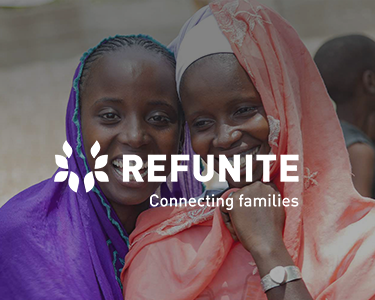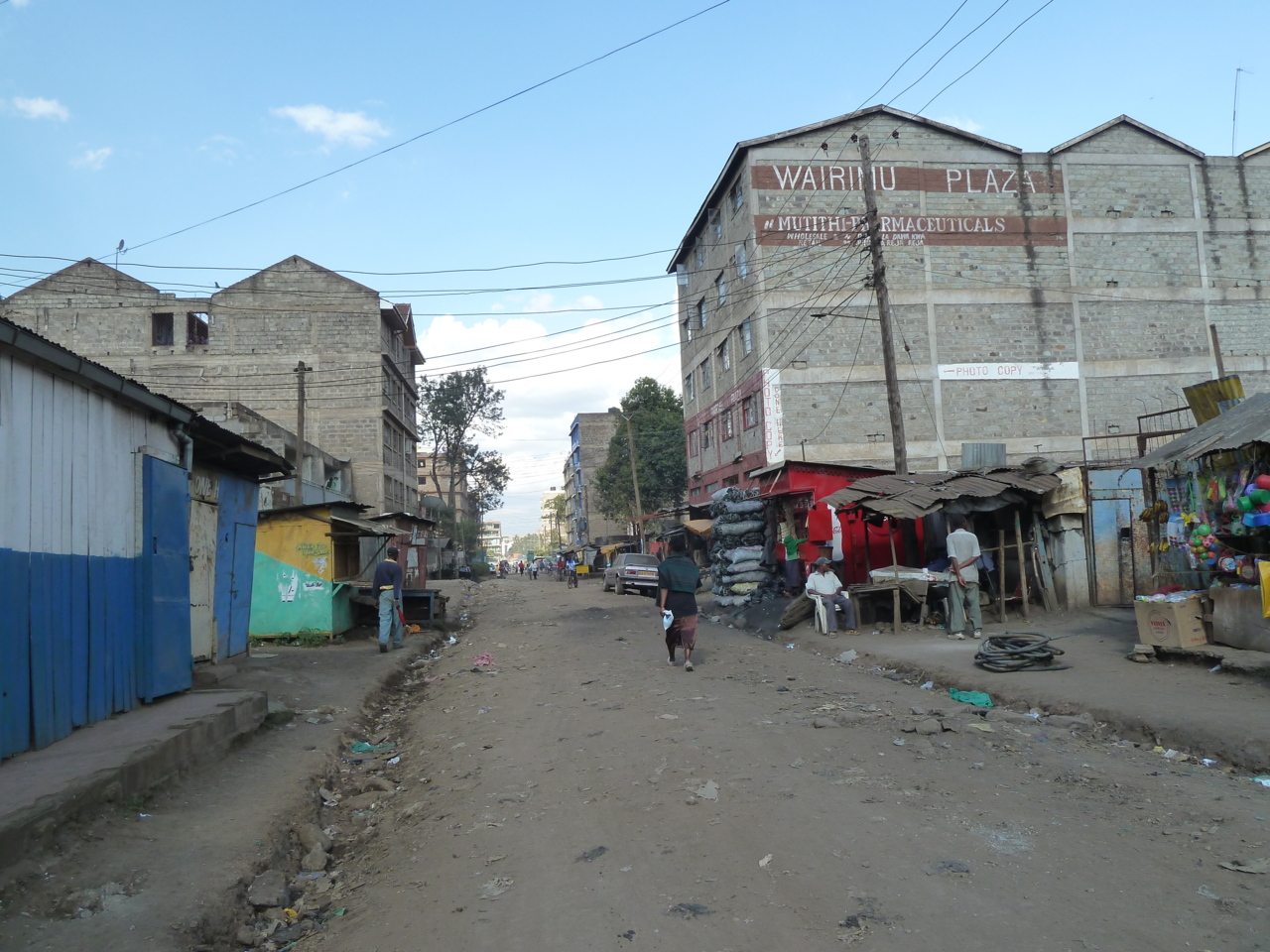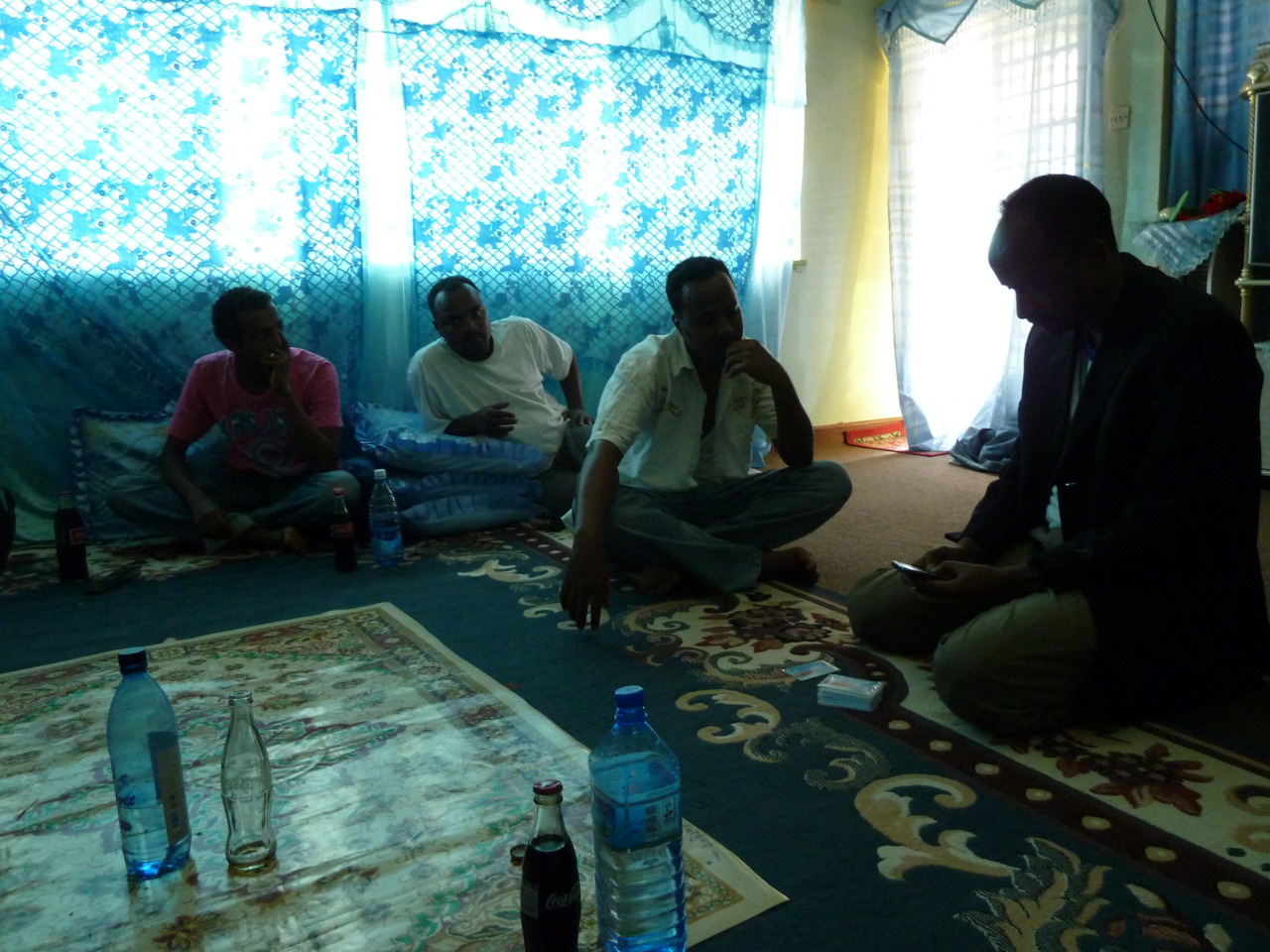Refugees United in Nairobi, September 2011
Chapter 2.
One of the most impacting experiences of the week was an afternoon that Chris and I spent in Eastleigh together with Vladimir and one of our local community mobilizers (these are refugees themselves, employed through the Refugee Consortium of Kenya to help spread awareness about Refugees United and help refugees sign up to our platform). Our aim was to gain some first-hand insights into our ‘customer base’ and better understand the work of our community mobilizers and the related challenges.
Eastleigh is a suburb in Nairobi, predominantly inhabited by Somali immigrants and countless refugees; “a country within a country” as it is often referred to. There are no official numbers on how many refugees reside in Eastleigh, but when one asks, estimates amount to many thousands.
The sun was shining from a bright and blue sky that afternoon, and as we started walking through the streets, I inevitably felt many eyes lingering upon us – a contrasting feeling to otherwise walking around in Nairobi as a European. In this part of the city, I realized, foreigners probably rarely roam the streets and alleys. As we walked through the small, litter-filled gravel streets, with fumes rising from the heaps of waste, the backdrop reality of our work became very clear.
Our first stop was a small apartment where a couple of young, male refugees from Ethiopia were living. They invited us in, and after having taken off our shoes, we entered a rather dark, sparsely furnished, yet somehow inviting, living room. Large pillows on the carpeted floor lined the small room, and we sat down to learn more about how these refugees were using and had experienced using the Refugees United search tool. Our community mobilizer helped translate back and forth, so we quickly gained a lot of insights into our end users and the associated challenges. There were some striking paradoxes crystallizing throughout the conversation; here we were, sitting with refugees having lost their homes, families and jobs – however, they did have brand new Android phones and Internet connection – which is by far the norm within refugee populations. Asked about their use of the Refugees United search tool, however, it became clear that a basic understanding of their own active role in the search process was lacking. This really proved the point that technology is only a powerful enabler if people truly understand the value of what you’re offering – and how to use your service. A vital reminder for us, and something we’re constantly on our toes to crack even better how to address.
We ended our afternoon visiting another Ethiopian refugee. He’d lost his entire family, had no job, and no money. While talking to us, he didn’t invite us in – but did so when we were about to leave, which is when we understood why he hadn’t invited us in earlier. This refugee was living in a cell the size of a large cupboard, just one small window letting in some daylight. Standing in this tiny room, realizing that this was all this refugee had, left me speechless. It’s hard to put words to the emotions that went through me at that point, and I’m quite certain all of us there shared that feeling. However terrible it was to witness the reality of these refugees’ life, it also gave a very clear picture of what Refugees United can do to alleviate the suffering of these people. Having lost everything, for these thousands and thousands of people Refugees United can install hope and help them search for their family and loved ones: those people that mean the world to you and that, even if you don’t have a home, a job or any money, can help you persist through the toughest hardships in life.
With 43 million refugees worldwide, there’s still a long way to go, but growing insights and activities are continuously moving Refugees United forward – and it will be exciting to see our mission raised to new levels in the near future. More to come from my side…
Best,
Claudia





